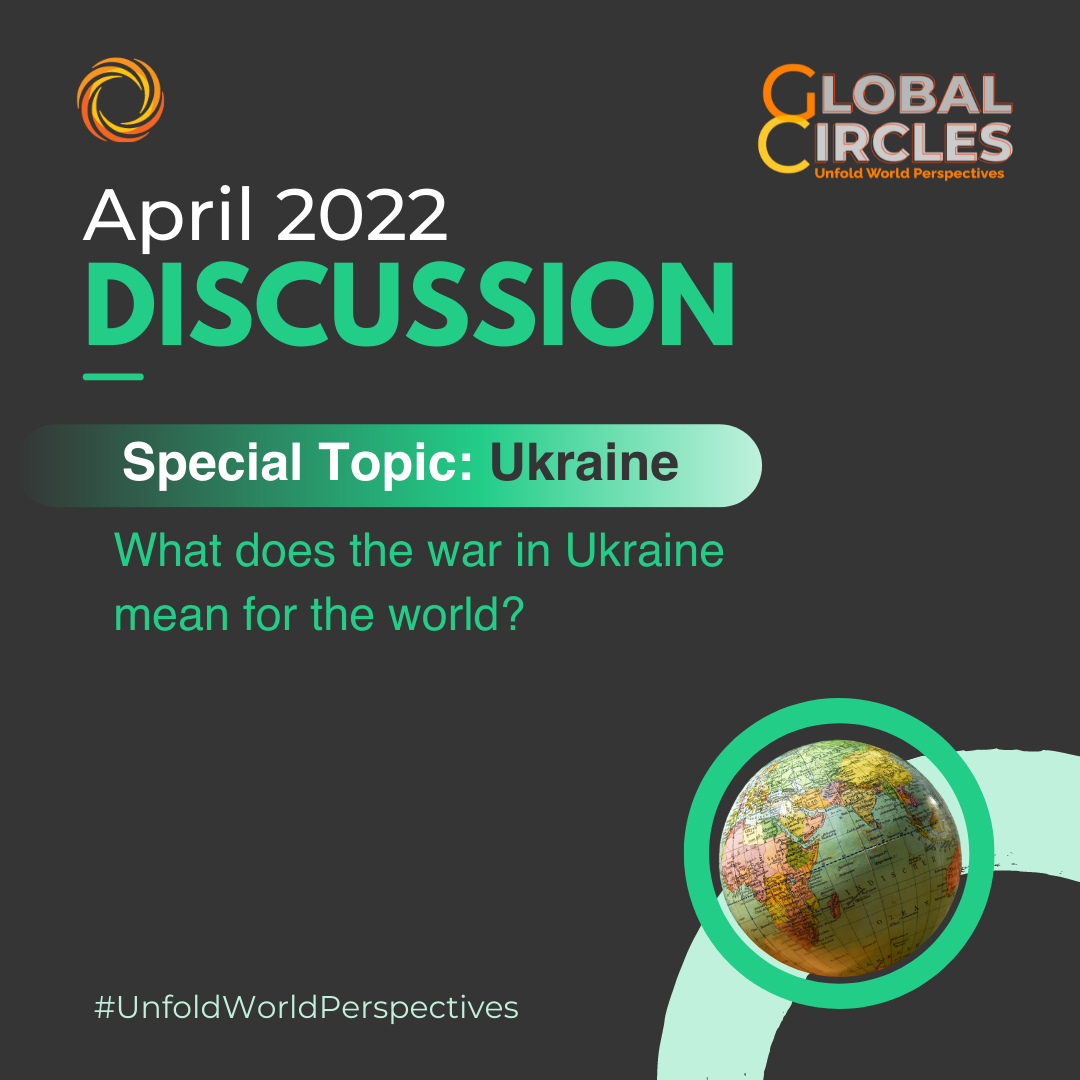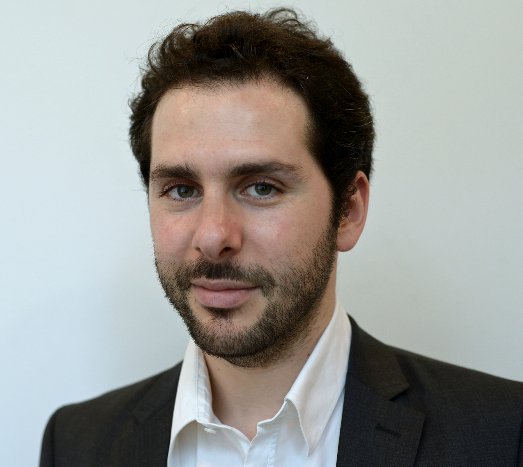Global Circles Digest | What does the war in Ukraine mean for the world?
Global Circles Digest – a synthesis of the dialogue based on facilitator observation reports, reflecting on converging and diverging views and emotions expressed during the exchanges. The digests don’t make attributions to participants to preserve the private and safe nature of our dialogue spaces.
Written by Rafael Tyszblat, an innovation and design specialist at Soliya overseeing content and curriculum development for new dialogue and training projects.
“When asked to share an event or an image that has influenced our way of seeing the war in Ukraine, I talked about my family’s experience escaping from the war in Bosnia. At that moment I thought about what my family had to go through and it was very sad to imagine that so many other people are feeling the same right now.”
The April 2021 Global Circles round topic was “What does the war in Ukraine mean for the world?” This followed the March round on “Social Media During Armed Conflict: A Weapon of War or Network for Peace?” During those two exceptional rounds, participants discussed a topic that few expected would be breaking news just a month before.
As the world witnessed the armed conflict involving a European country for the first time in several decades, most participants expressed feeling frightened by the potential of escalation, and powerless when it comes to finding solutions. Participants were concerned about the consequences due to tensions in the energy sector or the massive wave of refugees. The social media discussion focused on how discourses and information sharing can be particularly affected (through the spread of propaganda or the radicalization of narratives) during times of war, using the situation in Ukraine as an example.
The discussions had a high potential for confrontational dynamics due to several factors:
The shock of the intervention that few people expected
The fact that it involves Russia and the West and the broader debate about the responsibility of the West vs. non-Western countries
The risk of nuclear escalation
The perception of double standards when speaking of refugees and their treatment by European / Western countries
The difficulty to determine what is real, what is fake, and what remains a question mark, due to the proliferation of content and discourses on social media
Even though many participants have consumed much media content around what has been happening in Ukraine, they were never placed as experts but instead were invited to explore and share how they forged their opinions and how that impacts their vision of the world.
Some questions that were asked:
According to what you have been seeing on media and social media in your respective countries, what is this war really about?
How do our viewpoints vary depending on where we are?
Is this conflict different from other conflicts? What may be unique about this conflict?
What do you think of the international response to what is happening?
Is it the international community’s responsibility to be involved militarily or will international involvement further exacerbate the situation?
How does the media (in your country) describe what is taking place in Ukraine?
What does this tell us about how war is treated by the media?
How can we help to spot and stop the spread of misinformation?
How do you feel about the international response towards Ukrainian refugees?
How can escalation be prevented now? What should happen to de-escalate the conflict?
Participants discussed what the impact of the Ukrainian war on the world means to them, sharing their reflections on their impressions when they first heard about the war being launched. All of them seemed to agree on the brutality of war in general, the fact that it mostly harms the innocent, the direness of the refugee situation, and how this war should end as soon as possible. Participants had varying levels of knowledge on geopolitics and those who didn’t know much were eager to learn from other participants who were more knowledgeable. Together they evaluated the role and value of the United Nations with much criticism.
Across all groups, the main debates took place over the reasons – and who’s responsible, between Russia, Ukraine, and the West – for the start of the war. Most seemed to be of the perception that the trigger was Ukraine's intention to join NATO (or the intention of NATO to integrate Ukraine). Some participants said Ukraine is a sovereign state and can ally with NATO or any other country or alliance; others responded saying that in that case Russia had no choice but to invade Ukraine. “What if Mexico decided to get into a military agreement with Russia whereby Russia can move its heavy destructive weapons next to the US borders?” some asked. “Would the US remain silent towards this?” Regardless of the reasons put forth, everyone in the group was of the view that Russia made a mistake by invading Ukraine.
Another contentious topic involved the question of whether Russia’s behavior was different from the United States’ behavior regarding lawless foreign interventions. This made it difficult for some American participants who felt their country was criticized. This also allowed the acknowledgement of the differences between government and people.
Participants from Poland expressed fear that Russia might resort to nuclear weapons because of the sanctions, considering that “a desperate country is a dangerous country," while other participants considered that Russia could not be so desperate since so many Western and non-Western countries continue to buy Russia's gas. Some groups also talked about how the war affected their country’s economy by raising of prices on gas, petrol, and groceries. Participants from Tunisia spoke to the effects of the war being already felt in tourism in their country.
Disagreements revolved around how different conflicts are covered by the media and how the attention from the “International Community” varied from issue to issue. Some regretted that other wars, including in the Middle East and North Africa, get less attention than the one in Ukraine. This “double standard treatment” was specifically mentioned regarding Ukrainian refugees compared to Syrian refugees in the last years.
Overall, participants showed much awareness about the role of media coverage and how it shapes perspectives regarding the war. With the shared impression that each of us can be stuck in information bubbles, participants were eager to learn from other countries’ media perspectives.
Participants spent most of the second session exploring ideas to decrease the impact of the war on other countries. One of the issues was about converting the economy to clean energy, while keeping jobs safe for poor workers. In the end, participants were split between those who were pessimistic about the return to law and order in international politics, and those who wanted to remain optimistic and keep faith toward diplomatic solutions in the face of a potential nuclear war.
At the end of the program, many participants acknowledged that this kind of engagement was not that easy to achieve outside of facilitated discussion. This model of virtual exchange enabled participants to be active listeners and to respect each other even when they did not agree with each other.



